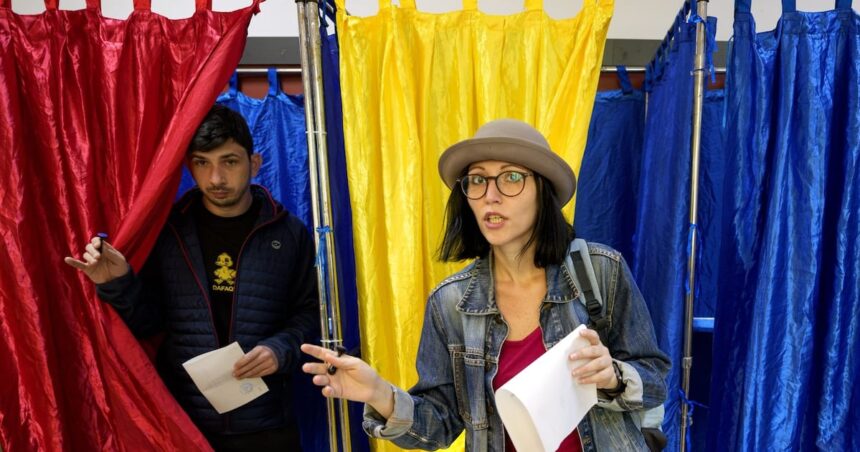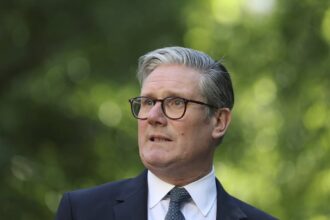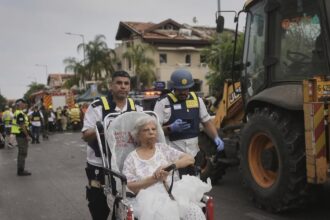In a pivotal moment for Romania’s democratic trajectory, millions of citizens headed to polling stations Sunday in a tense presidential runoff that crystallizes the broader ideological struggle reshaping European politics. The contest between nationalist challenger Călin Georgescu and pro-European centrist Elena Lasconi has transformed from a routine election into a referendum on Romania’s future place within the European community.
Early morning queues formed outside voting locations in Bucharest, where Florin Dumitrescu, a 42-year-old software engineer, expressed concern about the stakes. “This isn’t just about choosing a president—it’s about deciding whether we continue looking westward or retreat into isolation,” he told me as polling stations opened at 7 a.m. local time.
The electoral showdown emerged unexpectedly after first-round results upended predictions. Georgescu, a political outsider who previously worked as a sustainability consultant, shocked observers by securing 22.9% of initial votes with campaign rhetoric that blended environmental concerns with nationalist themes and criticism of NATO. His rise mirrors similar populist surges across Europe, from Hungary to Slovakia.
Lasconi, mayor of Câmpulung and former journalist, represents Romania’s centrist, pro-EU vision with 19.5% of first-round support. “Romania’s path toward European integration and democratic values cannot be reversed,” she declared at her final campaign rally in Bucharest Friday. “We’ve worked too hard since 1989 to build these connections.”
The election has exposed Romania’s deepening urban-rural divide. In Cluj-Napoca, the country’s technology hub, support for Lasconi dominates, while Georgescu’s message resonates in smaller communities and among those feeling left behind by economic modernization.
“Rural voters see traditional values eroding and blame Brussels,” explained political analyst Maria Constantinescu from the Bucharest Policy Institute. “Meanwhile, younger urban professionals fear isolation from European markets would devastate Romania’s growing technology and service sectors.”
International observers are monitoring the contest closely, with the European Commission expressing subtle but clear preference for continued pro-EU leadership in the country of 19 million. Romania joined the European Union in 2007 and has received over €45 billion in developmental funds since accession, transforming infrastructure and institutional frameworks despite persistent corruption challenges.
Romania’s electoral authorities have enhanced security measures following concerns about potential foreign influence operations. The National Electoral Bureau deployed additional digital monitoring systems after identifying what officials described as “anomalous patterns of disinformation” targeting the electoral process across social media platforms.
For Romania’s substantial diaspora—estimated at over 3 million citizens living abroad—the election carries particular significance. Special polling locations across Europe, North America, and Australia reported strong turnout, with Romanians in London, Paris, and Madrid forming long lines to cast ballots.
The presidential role in Romania, while largely ceremonial, holds significant influence over foreign policy, national security matters, and the approval of key institutional appointments. The position also serves as a crucial check on parliamentary power, particularly important as Romania navigates complex regional security challenges amid Russia’s ongoing war in Ukraine, with which Romania shares a partial border.
Economic considerations loom large for voters. Despite averaging 4.1% GDP growth over the past five years—outpacing EU averages—Romania continues struggling with regional inequality and emigration of skilled workers. Inflation remains stubborn at 5.4%, affecting household purchasing power.
As polling stations prepare to close at 9 p.m. local time, the question lingers: will Romania affirm its European trajectory, or will it join neighboring nations in challenging the consensus that has shaped the continent’s post-Cold War order? The answer may reveal not just Romania’s direction, but offer insights into the resilience of Europe’s democratic institutions in an increasingly polarized political landscape.

























